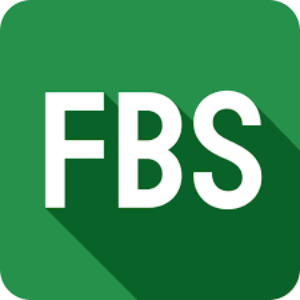
The search for the best Forex broker in Spain can be cumbersome, considering the various options and the kind of information people need to make informed decisions. Basically, there are numerous Forex brokers in Spain, but most are well-regulated and offer competitive fees, so making an informed decision helps one to have successful trading. Understanding the regulatory environment, especially under the Comisión Nacional del Mercado de Valores (CNMV), is essential for ensuring your investments are secure.
As I explored the landscape of Forex trading, I discovered the importance of features like trading platforms and customer support. Quality brokers should offer user-friendly platforms, access to educational resources, and responsive customer service. This knowledge can help traders at any level feel more confident in their trading decisions and strategies.
Navigating costs, fees, and deposit methods is also crucial. By selecting a broker that fits your trading style and financial goals, you set yourself up for potential success in the global currency market. Let’s dive into some of the top brokers and what they offer to traders in Spain.
- Very competitive RAW ECN spreads
- Quick account setup (<1 day)
- Multiple platform support
- Strong regulatory oversight
- Limited educational resources
- No social trading features
- Excellent mobile trading platform
- Multiple regulatory licenses
- Diverse trading instruments
- MT4, MT5, and proprietary platform
- Higher minimum deposit than others
- Limited ECN account options
- Industry-leading low spreads
- No minimum deposit required
- Strong regulatory compliance
- Excellent for budget-conscious traders
- Limited product range vs competitors
- Newer broker (less track record)
Quick Comparison
| Feature | FP Markets | AvaTrade | Fusion Markets |
|---|---|---|---|
| Best For | ECN Trading | Mobile Trading | Low-Cost Trading |
| Min. Deposit | €100 | €100-500 | €0 |
| Regulation | ASIC, CySEC | CBI, ASIC, FSCA | CySEC |
| Trading Platforms | MT4, cTrader | MT4, MT5, AvaTradeGO | MT4, MT5 |
| Spreads | From 0.0 pips | From 0.9 pips | Ultra-low |
| Account Types | Standard, RAW | Multiple | Standard, ECN |
Regulatory Environment for Forex Brokers in Spain

Forex brokers in Spain operate within a robust regulatory framework designed to protect investors and ensure fair trading practices. Understanding this environment is crucial for anyone looking to trade in the forex market. The following sections outline the key regulatory bodies and their roles.
CNMV and National Securities Market Commission Guidelines
The Comisión Nacional del Mercado de Valores (CNMV) is Spain’s primary regulatory authority for financial markets. It oversees the activities of forex brokers operating in Spain. The CNMV ensures that these brokers adhere to strict guidelines, which include transparency in operations, maintaining adequate capital reserves, and providing investors with the necessary information to make informed decisions.
In addition to licensing, the CNMV focuses on investor protection. Brokers must comply with the MiFID II regulations, which aim to enhance transparency and improve the trading experience for retail investors. This includes requirements for clear communication about fees, spreads, and the risks involved in trading foreign exchange.
ESMA and European Securities and Markets Authority Regulations
The European Securities and Markets Authority (ESMA) enhances the regulatory framework for forex trading within the European Union, including Spain. It sets guidelines that affect leverage, margin requirements, and other aspects of forex trading. For instance, ESMA has introduced maximum leverage limits for retail clients, reducing potential risks for investors.
ESMA also emphasizes investor protection by requiring brokers to provide detailed risk warnings and clear information about the nature of trading forex. By aligning Spanish regulations with EU standards, ESMA helps create a safer trading environment while promoting fair competition among brokers.
CySEC and Cyprus Securities and Exchange Commission Oversight
While CySEC operates primarily in Cyprus, many forex brokers choose to establish their businesses there due to favorable regulatory conditions. Brokers regulated by the Cyprus Securities and Exchange Commission (CySEC) can offer services under European law, including in Spain.
CySEC’s regulations often provide an additional level of regulatory compliance that Spanish traders appreciate. Brokers must adhere to strict guidelines on capital adequacy, customer fund protection, and operational transparency. This makes CySEC-licensed brokers an attractive option for those seeking reliable trading partners.
In conclusion, the regulatory environment for forex brokers in Spain is predominantly shaped by local and EU authorities. Understanding these regulations can enhance your trading experience and help you make informed decisions when choosing a broker.
3 Best Forex Brokers in Spain (2025 Edition)
Selecting the right forex broker in Spain isn’t just about ticking regulatory boxes; it’s about finding a trading partner that aligns with personal goals, risk appetite, and preferred trading style. The Spanish forex market, underpinned by EU regulatory frameworks like MiFID II, offers a safe environment, but cost structures, platform options, and asset diversity remain key differentiators. Here’s a detailed breakdown of three standout brokers that meet the needs of both new and seasoned traders.

1. FP Markets – Best for Low Spreads & Multi-Platform Trading
FP Markets has carved a niche for itself by offering RAW ECN (Electronic Communication Network) pricing, a model that connects traders directly to liquidity providers. This setup eliminates middlemen, ensuring tighter spreads and faster execution, critical for strategies like scalping or day trading.
Why It Matters:
For traders in Spain seeking to minimize trading costs, especially in high-frequency environments, FP Markets’ RAW ECN accounts provide an edge. With spreads starting from 0.0 pips, it allows traders to capitalize on small market movements without hefty spread costs.
Expanded Features:
- Established Trust: Operating since 2005, with regulation from ASIC and CySEC, FP Markets brings two decades of market integrity.
- Platform Flexibility: Offers MetaTrader 4, MetaTrader 5, and cTrader, each catering to different trading styles:
- MT4/MT5: Ideal for forex and CFD traders, offering automated trading (EAs).
- cTrader: Appeals to professional traders who prefer deeper market depth and advanced order types.
Account Types Breakdown:
| Account Type | Spread (from) | Commission (per lot) | Minimum Deposit | Best For |
|---|---|---|---|---|
| Standard | 1.0 pips | None | $100 | Beginners, casual traders |
| RAW ECN | 0.0 pips | $6 round-trip | $100 | Scalpers, high-volume traders |
Insight:
The RAW ECN account is a standout for active traders seeking to reduce costs. While it comes with commissions, the ultra-low spreads make it cost-effective over time.
2. AvaTrade – Best for Mobile Trading & Asset Diversity
AvaTrade appeals to modern traders who demand mobility. In an era where trading decisions often occur on the fly, AvaTrade’s AvaTradeGO app provides Spanish traders with real-time market sentiment, risk management tools, and seamless access to a wide range of assets.
Why It Matters:
For traders who value flexibility, being able to analyze, manage, and execute trades from a smartphone without sacrificing functionality is critical. AvaTradeGO ensures that mobile users enjoy features comparable to desktop platforms.
Expanded Features:
- Founded in 2006: With regulation across Europe, Australia, South Africa, and the Middle East, AvaTrade ensures a globally compliant framework.
- Asset Variety: Over 600 stock CFDs, 55+ forex pairs, and cryptocurrencies like Bitcoin and Ethereum.
- Commission-Free Model: Offers all-inclusive spreads, making it easier for beginners to calculate costs.
Asset Coverage:
| Asset Class | Instruments Offered | Why This Is Important |
|---|---|---|
| Forex | 55+ pairs | Access to major, minor, and exotic pairs |
| Cryptocurrencies | 14 | Exposure to both major and altcoins |
| Indices & Stocks | 600+ | Diversification beyond forex |
| Commodities | 20+ | Hedge against currency volatility (e.g., Gold, Oil) |
Insight:
AvaTrade’s multi-asset approach allows traders in Spain to diversify portfolios, reducing reliance on a single market (forex). This aligns with risk management principles that advocate diversification.
3. Fusion Markets – Best for Low-Cost Trading
Fusion Markets distinguishes itself by being laser-focused on cost efficiency. With spreads starting at 0.0 pips and commissions as low as $4.50 round-trip, this broker offers some of the most competitive rates globally.
Why It Matters:
For cost-conscious traders, particularly in Spain where European brokers often have higher fees, Fusion Markets’ structure helps maximize profitability, especially for those trading frequently or with smaller capital.
Expanded Features:
- Established in 2017, Fusion Markets is younger but regulated by ASIC, VFSC, and CySEC, ensuring it meets international compliance standards.
- No Minimum Deposit: This significantly lowers entry barriers, allowing new traders to explore the forex markets without committing large sums.
- Supports Copy Trading: Via Myfxbook AutoTrade, allowing less experienced traders to mirror professional strategies.
Cost Comparison:
| Broker | Minimum Spread (EUR/USD) | Commission (per lot) | Minimum Deposit |
|---|---|---|---|
| FP Markets | 0.0 pips | $6 round-trip | $100 |
| AvaTrade | 0.9 pips | None | $100 |
| Fusion Markets | 0.0 pips | $4.50 round-trip | None |
Insight:
Fusion Markets’ no-deposit requirement and low fees make it attractive for scalpers and beginners who want to dip their toes without large financial commitments.
Why These Brokers Excel for Spanish Traders in 2025
- EU Regulation Alignment:
- FP Markets and AvaTrade, through CySEC, comply with MiFID II, ensuring investor protection, transparency, and fair trading practices.
- Tailored for Different Trader Profiles:
- FP Markets for low-cost ECN trading and platform choice.
- AvaTrade for mobile-first traders and diversified asset seekers.
- Fusion Markets for those prioritizing low costs and flexibility.
- Key Trader Needs Addressed:
- Low spreads (essential for frequent traders).
- Mobile trading (suited for on-the-go professionals).
- Diverse markets (ideal for portfolio diversification).
Evaluating Forex Broker Features and Services

When choosing a forex broker in Spain, I need to assess several critical features and services. Key elements include the trading platforms offered, account types, leverage options, and the structure of spreads and commissions. Here’s a closer look at these factors.
Trading Platforms and User-Friendly Platforms
When evaluating forex brokers, the trading platform is essential. I prefer platforms that are intuitive and offer a range of tools for analysis. Popular choices like MetaTrader 4 and MetaTrader 5 provide advanced charting features and automated trading options.
A user-friendly interface can significantly enhance my trading experience. I look for brokers that offer mobile app access so I can trade on the go. Additionally, demo accounts are vital for practice without risking real money. Some brokers, like Interactive Brokers, provide excellent platforms equipped with educational resources for beginners.
Account Types and Minimum Deposit Requirements
The variety of account types offered by brokers is important to me. Some brokers provide standard accounts, while others have options catering to beginners or advanced traders. I look for a broker that offers a commission-free trading option, as it can enhance my potential profits.
Minimum deposit requirements can vary significantly. Some brokers allow low initial deposits, which is attractive to me if I’m just starting. Others may require a higher initial investment in exchange for better features or lower spreads. Always consider what suits my trading style and budget best.
Leverage and Leverage Limits
Leverage allows me to control larger positions with a smaller amount of capital. However, it’s vital to understand the risk involved. I pay attention to the leverage limits offered by different brokers, as these can impact my trading strategy.
In Spain, many brokers offer leverage of up to 30:1 for retail traders. This can amplify profits, but losses can occur just as quickly. Brokers must provide information about margin requirements and risk management tools. I assess these details carefully before committing to a broker.
Spread and Commission Structure
The spread is the difference between the buying and selling price of a currency pair, and it plays a significant role in my trading costs. I look for brokers that have competitive spreads, ideally lower than the market average.
Commission structures can also impact my overall trading expenses. Some brokers use a fixed commission per trade, while others offer a spread-only model. I compare various brokers to find the one that provides the best combination of low spreads and transparent commission pricing. Understanding these costs helps me make informed trading decisions.
Costs and Fees Associated with Forex Trading

When trading forex, understanding the costs involved is crucial. Different brokers have varying fee structures, and knowing these can significantly impact your profits. Here, I will cover important aspects like spreads, commissions, and the necessity for transparency in fee structures.
Understanding Spreads and Competitive Spreads
In forex trading, a spread is the difference between the buying and selling prices of a currency pair. This cost is often the main expense for traders. Brokers offer different types of spreads: fixed, variable, and floating. A fixed spread remains constant, while a variable spread changes based on market conditions.
Competitive spreads are essential for effective trading. A narrow spread reduces transaction costs, making it easier to profit from trades. For example, if you trade a currency pair with a tight spread, you will need a smaller price movement to cover the cost. Understanding how spreads affect your trading can help you choose a broker that minimizes these costs.
Low Spreads and their Impact on Trading
Low spreads are beneficial for frequent traders. They can enhance profitability, especially in high-volume trading strategies like scalping. When brokers offer low spreads, it indicates that they aim to attract active traders.
For instance, a low average spread of 0.1 pips on major pairs can save you significant money over many trades compared to a spread of 2 pips. In the competitive forex market, finding brokers that offer low spreads without compromising on service quality is vital. Always compare spreads across different brokers to find the best rates available.
Commission Costs and Finding Low-Fee Options
Some forex brokers charge a commission in addition to spreads. This could be a fixed fee per trade or a percentage of the trade value. Understanding these costs is essential for managing trading expenses.
To find low-fee options, it’s beneficial to look for brokers that do not charge high commissions or that provide commission-free trading on certain accounts. Many brokers offer a structure where low spreads compensate for the absence of commissions, making trading more cost-effective. Investigating different broker setups will allow you to make an informed choice based on your trading habits.
The Importance of Transparent Fee Structures
Transparency in fee structures is crucial. I prefer brokers that clearly outline their charges in one place. Hidden fees can eat away at profits. A good broker provides detailed information on all applicable fees, including spreads, commissions, and any additional charges.
Choosing a broker with transparent pricing helps me avoid surprises that could derail my trading success. Always ask for clarity on fee structures before signing up. Comparing current fee schedules across various brokers will help ensure you are working with a trustworthy provider.
Support and Resources for Forex Traders

In the forex market, traders need reliable support and valuable resources. This section highlights key aspects, including customer support, educational tools, and practice accounts that can enhance trading success.
Customer Support and Service Quality
Effective customer support is crucial for forex traders. I look for brokers that offer multiple communication channels such as phone, email, and live chat. It is also important that support is available 24/5 or even 24/7 to address urgent inquiries.
I also appreciate brokers with knowledgeable representatives who can help with technical issues, account questions, and trading platform navigation. A high-quality support service can make a significant difference, especially for beginners who are still learning the ropes.
I generally prefer brokers that provide comprehensive FAQ sections and resources. This self-help material saves time and improves user experience.
Educational Resources for Traders
Education is vital for anyone looking to succeed in the forex market. I find that top brokers offer a range of educational resources, including webinars, tutorials, and e-books. These tools help traders understand market dynamics, trading strategies, and risk management practices.
Some brokers even provide in-depth guides on specific trading techniques, which allows me to improve my skills over time. I also look for brokers that offer insights into economic indicators and their impact on currency pairs. This knowledge is essential for making informed trading decisions.
Having access to demo accounts is another valuable resource for traders.
Demo Accounts and Practice Trading
Demo accounts are essential for practicing trading without risking real money. I choose brokers that offer unlimited trial periods, allowing me to explore their trading platform thoroughly.
With a demo account, I can test strategies, get comfortable with the trading interface, and learn how to manage my trades effectively. This practice can reduce anxiety when transitioning to live trading.
Additionally, a broker that offers a simulated environment closely resembling live market conditions helps me when I decide to start trading with actual funds. This approach boosts my confidence and improves my overall trading experience.
Trading Strategies and Platform Features

In the world of forex trading, using the right strategies and platform features is crucial for success. Traders can choose from various methods that suit their styles, whether they prefer automated trading, social trading, or fast-paced scalping.
Algorithmic Trading and EA Trading
Algorithmic Trading involves using computer programs to execute trades. These programs analyze market data and make trades based on pre-set rules. I find that many traders benefit from Expert Advisors (EAs), which automate strategies in platforms like MetaTrader 4 and MetaTrader 5.
This approach can increase efficiency and save time. However, it’s important to test EAs on demo accounts before using them with real money to ensure they perform well under different market conditions. Success in algorithmic trading relies on regular adjustments to algorithms based on market trends.
Copy Trading and Social Trading
Copy Trading allows traders to mimic the trades of successful investors. This action is beneficial for beginners who want to learn from experienced traders. Platforms often provide features to browse traders based on performance and strategy.
Social Trading combines this feature with a community aspect, letting traders discuss strategies and share experiences. I’ve seen firsthand how engaging with these communities can lead to better decision-making. It’s vital to research the traders you wish to copy, ensuring their strategies align with your risk tolerance and goals.
Scalping and its Feasibility with Brokers
Scalping is a strategy that focuses on making small profits from numerous trades throughout the day. It requires quick decision-making and access to reliable platforms with low spreads. Many brokers in Spain provide features that cater to scalpers, such as advanced order types and real-time analysis tools.
To succeed in scalping, a trader must choose brokers that offer fast execution speeds and high leverage options. I’ve found that consistent practice and a clear strategy make a significant difference in a scalper’s success. Do consider potential risks, as frequent trading can lead to increased transaction costs.
Deposits, Withdrawals, and Investor Protection

Managing deposits and withdrawals effectively is vital for any forex trader. Understanding the payment methods available, timely withdrawal options, and how your funds are protected can significantly impact your trading experience.
Secure Payment Methods
When choosing a forex broker in Spain, I look for secure payment options. Most reputable brokers offer various methods like bank transfers, credit cards, and e-wallets. Popular e-wallets include PayPal and Skrill, which provide an extra layer of security due to their encryption protocols.
It’s essential to verify that the broker complies with local regulations and uses secure systems to process transactions. I prefer brokers that can provide visible security measures, such as two-factor authentication (2FA), to protect my financial details while depositing funds.
Fast and Reliable Withdrawal Options
Fast withdrawals are crucial for maintaining liquidity in my trading strategy. I seek brokers with efficient processing times. Typically, e-wallet withdrawals are the fastest, often completed within 24 hours. Bank transfers may take longer, sometimes up to five business days.
Understanding the withdrawal policies is equally important. Some brokers impose withdrawal limits or charge fees, which can affect my profits. Therefore, I always check these details beforehand. A clear, straightforward withdrawal process can enhance my trading experience.
Ensuring Security and Protection of Funds
Ensuring the security of my investments is a top priority. I look for brokers regulated by the Commodity Futures Trading Commission (CFTC) or the National Futures Association (NFA). Regulatory bodies enforce strict guidelines that protect traders’ funds.
Additionally, ensuring that the broker keeps client funds in separate accounts can safeguard my money. This practice prevents mishandling and ensures my capital is available for withdrawal when I need it. Lastly, I check if the broker provides any investor protection schemes, which can offer added peace of mind.
Conclusion
Choosing the right forex broker in Spain is a critical decision that can significantly impact your trading success. FP Markets stands out as the top choice for traders seeking low trading costs and excellent ECN spreads, while AvaTrade offers the best mobile trading experience with its user-friendly AvaTradeGO platform. Fusion Markets completes the top three with its ultra-low spreads and zero minimum deposit requirement, making it perfect for budget-conscious traders.
Each of these brokers brings unique strengths to the table:
- FP Markets excels with its quick account setup and competitive RAW ECN spreads
- AvaTrade provides exceptional regulatory security with multiple tier-1 licenses
- Fusion Markets removes barriers to entry with no minimum deposit requirements
When selecting a broker, consider your trading style, capital, and priorities. Whether you’re a beginner looking for educational resources and demo accounts, an experienced trader seeking advanced platforms, or a high-volume trader requiring low spreads and fast execution, these brokers offer solutions tailored to different needs.
Frequently Asked Questions

I often get questions about forex trading, especially regarding brokers in Spain. These inquiries cover the best options for beginners, legal aspects, taxation, and other essential topics traders should know.
What are the top-rated forex brokers for beginners in Spain?
For beginners in Spain, I recommend brokers like eToro, which is user-friendly and offers a demo account. Another option is IG, known for its educational resources. Plus500 is also popular due to its straightforward platform and no commission on trades.
How are forex trading profits taxed in Spain?
In Spain, forex trading profits are generally classified as capital gains. This means they are taxed at rates ranging from 19% to 26%, depending on your total income. It’s wise to consult a tax professional to understand your specific situation better.
Which trading platform is highly recommended for forex trading in Spain?
MetaTrader 4 is highly regarded among forex traders in Spain. It offers advanced charting tools and automated trading features. Many brokers support it, allowing for easy access to the forex market.
Is forex trading legal for Spanish residents?
Yes, forex trading is legal for residents in Spain. Traders must ensure they use brokers regulated by the appropriate authorities, such as the CNMV (Comisión Nacional del Mercado de Valores). This ensures a level of protection and compliance.
Who are some notable forex traders from Spain to follow on social media?
I suggest following traders like Álvaro Fernández, who shares insights on forex strategies, and @ForexCheatSheet, which provides daily market analysis. These experts offer valuable information that can help sharpen trading skills.
What should a trader consider when choosing a forex broker in the European market?
When selecting a forex broker in Europe, I focus on several factors. First, the broker must be regulated. I also look at the trading platform’s features, the spreads offered, and the available currency pairs. Customer service and withdrawal options are additional aspects I consider important.









